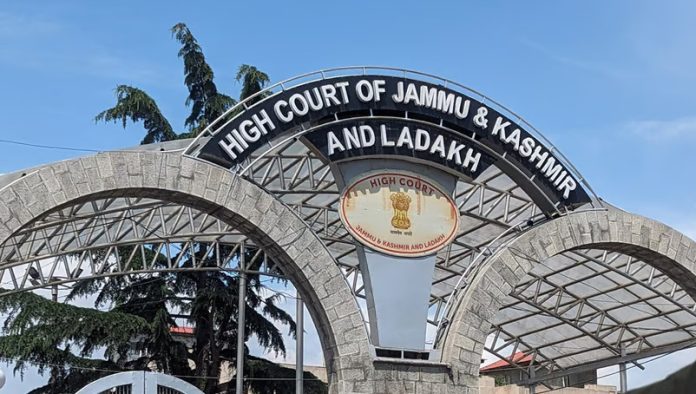‘Public interest chief consideration in deciding tender matters’
Mohinder Verma
JAMMU Aug 5: High Court of Jammu & Kashmir and Ladakh has paved the way for smooth execution of Rs 400 crore worth project of supply, installation and commissioning of grid connected rooftop solar photovoltaic power plants on the Government buildings across the Union Territory of J&K by dismissing a petition challenging the Notice Inviting Tender (NIT) floated by Jammu and Kashmir Energy Development Agency (JAKEDA) on the ground that tender is meant for the betterment of the country as a whole and not for the interest of certain individuals.
Follow The Daily Excelsior Channel On WhatsApp
Moreover, High Court has held that the scope of interference by the Constitutional Courts in tender matters is minimal and confined to the extent when there is arbitrariness and irrationality and conditions of the tender cannot be tailor-made to suit the eligibility of a party as court has to weigh the public interest viz-a-viz private interest while exercising the power under Article 226.
Justice Wasim Sadiq Nargal, who delivered significant judgment in tender related matters and paved the way for saturation of rooftop solar as envisioned by the Prime Minister’s Office and being monitored on constant basis by the Union Ministry of Home Affairs, was dealing with a petition challenging NIT dated June 12, 2024 issued by JAKEDA whereby e-bids were invited for the supply, installation and commissioning of grid connected rooftop solar photovoltaic power plants on Government buildings in the UT of J&K.
It was submitted by the petitioner that impugned tender has arbitrary eligibility criteria as it sets a minimum cumulative experience requirement of 2.5 MW for all the participating vendors, which has disproportionately excluded 31 out of 32 local vendors in Union Territory of Jammu and Kashmir, including the petitioner, who have demonstrated capability installing smaller rooftop solar systems.
However, the respondents submitted that tender was in conformity with the Ministry of New and Renewable Energy (MNRE) guidelines/orders.
After hearing Advocates Danish Majid Dar and Bhat Shafi for the petitioner and Additional Advocate General S S Kala for the respondents, Justice Wasim Sadiq Nargal said, “the ground reality which is being observed by the Constitutional Courts today is that almost no tender remains unchallenged. Unsuccessful parties or parties not even participating in the tender as it has happened in the instant case, seek to invoke the jurisdiction of the High Court under Article 226 of the Constitution”, adding “the Public Interest Litigation (PIL) jurisdiction is also invoked towards the same objective, an aspect normally deterred by the court because this causes proxy litigation in purely contractual matters”.
Stating that economics must be permitted to play its role for which the tendering authority knows best as to what is suited in terms of technology and price for them, High Court said, “the court being the guardian of fundamental rights is duty-bound to interfere when there is a strong foundation of arbitrariness, irrationality, mala fide and bias. However, in the instant case, the petitioner has failed to make out a case under the ambit of these four conditions”.
“This court is of the view that the conditions of the tender cannot be tailor-made at the behest of a party, who is ineligible to compete having no unfettered legal right. It is within the domain of the tender making authority having expertise both on technical side and administrative side to frame the conditions of a tender in a particular manner and courts having no expertise cannot direct the tender making authority to frame the condition of the tender in such a manner to suit the eligibility of ineligible tenderer”, Justice Nargal said, adding “if the same is permitted, it would be in flagrant violation of the law laid down by the Apex Court in catena of judgments”.
Further, the High Court said that court cannot assume the role of a tender issuing authority and cannot issue a direction to bifurcate, alter or change the terms and condition at the behest of a party who is ineligible and has no right to compete.
Moreover, High Court said, the petitioner by no stretch of imagination can advance the cause of 31 tenderers through the medium of the instant petition filed under Article 226 of the Constitution by expanding the scope of jurisdiction of court, more particularly, when no such grievance has been raised by those tenderers either before court or before the respondents.
“In a huge project involving Rs 400 crore, which relates to 70,000 KW, the criteria which has been laid down by the respondents is in conformity with the guidelines and MNRE and CVC guidelines cannot be termed as arbitrary”, High Court said, adding “the reasoning for laying down such criteria is with the sole object that the project, which is in public interest should not hamper and is executed in a timely manner by the party, who has resources to complete the project within the stipulated period. Awarding the contract to a party like the petitioner, who has a limited financial capacity is not sustainable in view of the high costs involved in the tender”.
Holding the challenge of the petitioner to the impugned NIT as ill-founded, High Court dismissed the petition being devoid of any merit. “The respondents are at liberty to proceed ahead with the tender in question and the interim direction, if any, passed by this court shall stand vacated”, read the judgment.


